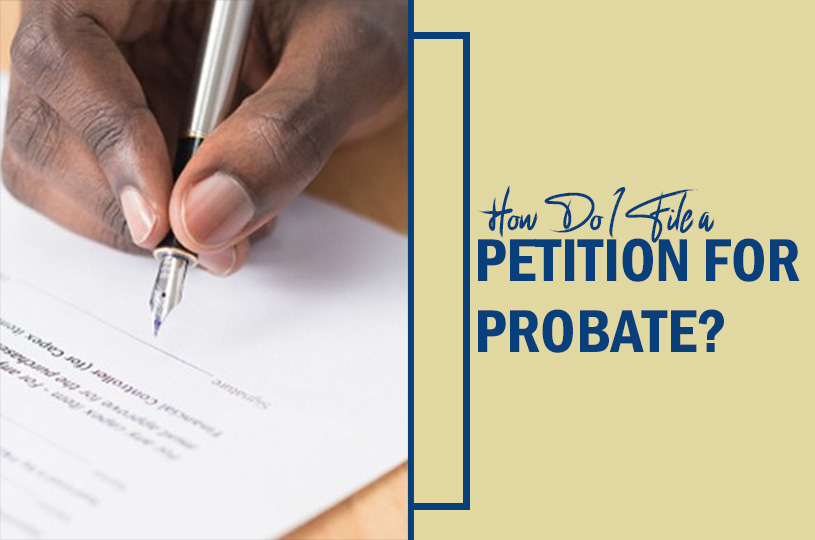Filing a petition for probate is an essential step in managing the estate of a deceased person, particularly when their assets are not automatically transferred to beneficiaries. Whether you are an executor named in a will or a family member managing an estate without a will, understanding the probate process ensures you fulfill your legal obligations while honoring the decedent’s wishes.
In this guide, we will outline the step-by-step process of filing a probate petition, discuss what a petition for probate entails, and highlight why professional legal assistance, such as from an English Law Firm, is crucial.
What Is a Petition for Probate?
A petition for probate is a formal legal document submitted to the court to initiate the probate process. This document requests the court to:
- Validate the decedent’s will (if available).
- Appoint an executor or administrator to manage the estate.
If you’re unfamiliar with probate, it is the legal process by which a deceased person’s assets are distributed to beneficiaries, creditors are paid, and disputes regarding the will (if any) are resolved. Learn more about house in probate meaning to understand how probate works for real estate assets.
Do I Need to File a Petition for Probate?
Not all estates require probate. You may need to file a petition if:
- The decedent left a will: Probate is necessary to authenticate the will and appoint the executor.
- There is no will: Known as intestate probate, the court appoints an administrator to manage the estate.
- The estate holds significant assets: Particularly if the assets cannot be transferred directly through joint ownership or beneficiary designations.
Some scenarios, such as small estates or those involving trusts, may bypass probate. Learn about avoiding probate court if you want to minimize probate complexities.
Steps to File a Petition for Probate
1. Gather Necessary Documents
Before filing, collect essential documents, including:
- The decedent’s death certificate.
- The original will (if available).
- Proof of your relationship to the decedent.
- Asset inventories.
2. Prepare the Petition for Probate
Work with an experienced probate attorney to draft the petition accurately. The petition typically includes:
- The decedent’s details (name, date of death, residence).
- A list of beneficiaries and heirs.
- Information about the will and nominated executor.
3. Submit the Petition to the Probate Court
File the petition in the probate court of the county where the decedent resided. Each state, including Texas, Georgia, and Mississippi, has unique filing requirements and deadlines.
4. Notify Interested Parties
The court may require you to notify all heirs, beneficiaries, and creditors of the probate proceedings. Proper notice ensures compliance and avoids disputes.
5. Attend the Probate Hearing
If the court schedules a hearing, be prepared to:
- Prove the validity of the will.
- Demonstrate your eligibility to serve as the executor or administrator.
6. Obtain Letters Testamentary or Letters of Administration
Once approved, the court will issue these documents, authorizing you to manage the estate.
7. Fulfill Administrative Duties
As the executor or administrator, you must:
- Pay off debts and taxes.
- Manage and distribute assets.
- File a final report with the court to close the estate.
Common Challenges in Filing Probate Petitions
- Disputes Among Heirs: Conflicts over asset distribution can delay the process.
- Unclear Estate Plans: Missing or ambiguous wills lead to complications.
- Legal Complexities: Navigating probate laws across multiple states can be challenging, especially for properties located in different jurisdictions.
If these issues arise, consult an attorney specializing in estate settlement, such as English Law Firm.
Why Hire a Probate Lawyer?
While it’s possible to file a probate petition independently, hiring a lawyer provides several advantages:
- Legal Expertise: Attorneys ensure all documents are correctly filed and deadlines are met.
- Efficiency: Avoid unnecessary delays by working with a professional.
- Dispute Resolution: Attorneys mediate conflicts between heirs or creditors.
Explore the benefits of working with a probate lawyer by visiting Do I Need a Probate Lawyer?.
FAQs About Filing a Probate Petition
1. How long does it take to settle an estate?
The time frame depends on the estate’s complexity. On average, it may take 6–12 months. Learn more about timelines from our estate settlement guide.
2. Can probate be avoided if there’s a will?
A will does not automatically bypass probate. Certain estate planning tools, like trusts, are needed to avoid probate.
3. Is probate required for small estates?
Many states, including Texas, Georgia, and Mississippi, offer simplified probate procedures for small estates.
4. How much does it cost to file a probate petition?
Costs vary depending on court fees and legal services. Consulting an experienced attorney can provide clarity.
5. What happens if no one files for probate?
If no one files, assets may remain inaccessible, and creditors may not receive payment. The court may eventually appoint someone to manage the estate.
Conclusion
Filing a petition for probate is a significant responsibility that requires careful attention to detail and compliance with state laws. By understanding the steps and seeking guidance from professionals like English Law Firm, you can ensure a smooth probate process while honoring your loved one’s wishes.If you’re ready to file a petition for probate or need assistance with estate planning, contact English Law Firm today for a consultation.

